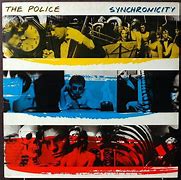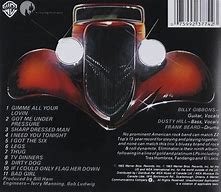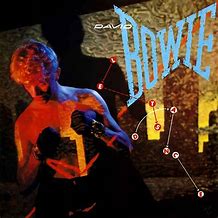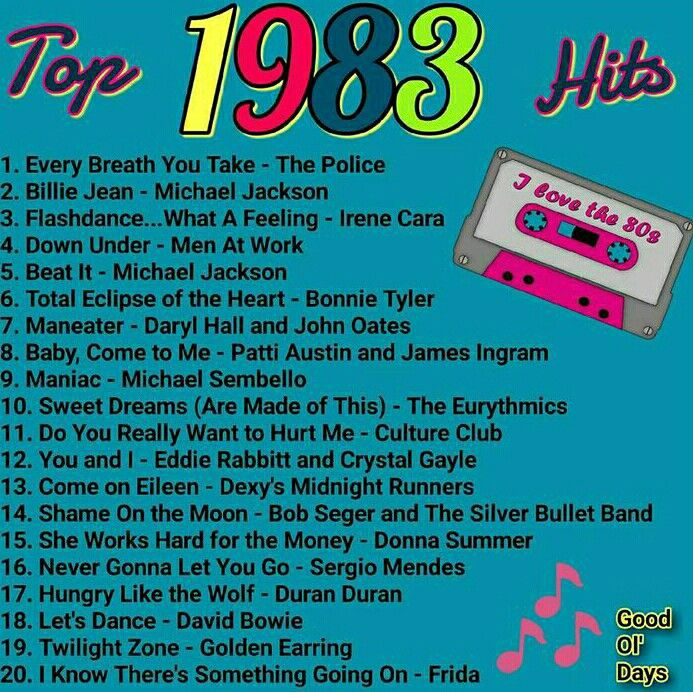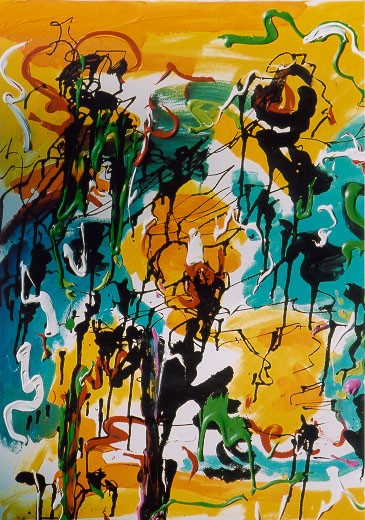Forty Years Ago: 1983, and the Pursuit of Pop Perfection
The Police, Prince, Michael Jackson, David Bowie, ZZ Top, U2, and Lionel Richie peppered 1983 with career-defining hit records. MTV loomed large.
Rock journal Rolling Stone put it best: 1983 “was the year pop went crazy. 1983 shook up all the old rules about how music worked. Suddenly, anything could happen…Every genre was booming…It was the year of the pop revolution.”
1983 was the year when Michael Jackson unveiled his “moonwalk” on Motown’s 25th Anniversary TV Special…Jackson and Paul McCartney managed another duet…Prince rode the charts in his “Little Red Corvette”…the Rolling Stones signed a $28 million record deal with CBS Records…the world was introduced to acts as diverse as Madonna, R.E.M., and Stevie Ray Vaughn…and newly-launched MTV fortified the hit single as pop music’s gold standard.
Music journalist Robert Christgau worried that commercial stardom was replacing artistry as validation of musical success. Or maybe this was just in step with the go-go ’80s, when “greed is good.”
Huge Albums
It might now be a quaint notion, but artists in 1983 released albums of recorded music (the CD was still a few years away from replacing vinyl) in which they designated cuts for radio play. In addition to Michael Jackson’s Thriller, which was actually released on November 29, 1982, the year 1983 was a banner year for albums yielding multiple hit singles.
The Police
The album Synchronicity, said to be the defining album of the Second British Invasion, yielded four singles for the Police: “Synchronicity I,” “Wrapped Around Your Finger,” “King of Pain,” and the big one, “Every Breath You Take,” the best-selling hit in America in 1983. It was number one for eight consecutive weeks.
Listeners (especially guys who don’t listen much to lyrics) just assumed “Every Breath You Take” was a love song, but singer/songwriter Sting couldn’t resist pointing out its ominous side: “I consider it a fairly nasty song,” said Sting. “It’s about surveillance and ownership and jealousy.”
ZZ Top
Threesome ZZ Top, that little ol’ band from Texas, had succeeded in the boogie and blues market since its founding in 1969. But lead guitarist Billy Gibbons wasn’t satisfied. Weary of touring and watching bands like Depeche Mode cash in their chips on MTV, Gibbons outlined ZZ Top’s next course: harnessing electronic music technology to create MTV- and radio-friendly four-minute pop gems.
The album: Eliminator. The hits: “Gimme All Your Lovin’,” “Sharp Dressed Man,” and “Legs.” The result: Blues purists couldn’t have been happy, but ZZ Top’s best-selling album sold over 14 million copies.
U2’s War
U2’s third studio album, released in February 1983, succeeded in knocking Michael Jackson’s Thriller off the top of the UK’s album chart. War was U2’s “statement” album, much like London Calling by the Clash turned heads at the dawn of the decade. The opening track, “Sunday Bloody Sunday,” addresses both warring factions of Northern Ireland’s “troubles” by pleading, “How long, how long, must we hear this song? How long? How long?”
The album’s lead single, “New Year’s Day,” makes veiled references to Poland’s Solidarity movement. It was the first U2 single to chart in America.
David Bowie
One more album of note: Let’s Dance, in which David Bowie shed his Ziggy Stardust persona to create a truly accessible, romantic, stylish, post-disco dance record.
Bowie gathered the likes of Chic guitarist Nile Rodgers to co-produce and an unknown guitarist named Stevie Ray Vaughn to add elements of soul and the blues to a pleasing pop confection of songs. It was a massive commercial success.
Hits include “Let’s Dance,” “Modern Love,” “China Girl,” and “Cat People (Putting Out the Fire).” Let’s Dance remains Bowie’s best-selling album.
Pop for Sale
Old Rockers
Veteran rockers from the ’60s and ’70s still plying their trade in 1983 offered a certain continuity. Here are some notables:
Marvin Gaye – Sexual Healing
Lionel Richie – You Are
Stevie Nicks – Stand Back
Billy Joel – Allentown
Don Henley – Dirty Laundry
Jackson Browne – Lawyers in Love
The Pretenders – Back on the Chain Gang
The Kinks – Come Dancing
Elton John – I’m Still Standing
Eric Clapton – I’ve Got a Rock ‘n’ Roll Heart
The 2nd British Invasion
Fueled by telegenic artists, irresistible synth-pop melodies, and the Anglophile lurking inside many Americans, a second wave of British rock acts descended upon US record stores, concert venues, and notably MTV in 1983. Here are some of them, listed in the order of their position on the year-end Billboard 1983 chart (previously mentioned artists are not listed):
Eurythmics – Sweet Dreams (Are Made of This)
Culture Club – Do You Really Want to Hurt Me
Dexy’s Midnight Runners – Come On Eileen
Duran Duran – Hungry Like a Wolf
Thomas Dolby – She Blinded Me with Science
The Human League – (Keep Feeling) Fascination
Adam Ant – Goody Two Shoes
The Clash – Rock the Casbah
Joe Jackson – Steppin’ Out
Spandau Ballet – True for the song
Elvis Costello – Everyday I Write the Book
The Smiths – This Charming Man
Women Take Center Stage
Here is the official music video for the song, “Flashdance…What a Feeling” which won singer Irene Cara a Grammy and an Oscar. This three-minute clip is from the 1983 movie Flashdance starring Jennifer Beals, published by UnidiscMusic via YouTube:
Women’s empowerment continued its ascent in 1983, particularly in the form of three songs that would achieve iconic status and remain beloved by today’s listeners.
Besides Irene Cara’s “Flashdance…What a Feeling,” two others stand out: “Total Eclipse of the Heart” by Welsh singer Bonnie Tyler, whose raspy voice transformed a love song into an “emotionally exhaustive ballad;” and Laura Branigan’s anthemic “Gloria,” which spent a record 36 weeks on the Billboard Hot 100 (1982-83).
Novelty Records
Pop listeners in 1983 suffered momentary confusion over band names beginning with “Men something.” What’s up with working without hats? Actually, two bands had the partial moniker: Men At Work offered a charming, melodic tribute to their homeland in “Down Under.” Men Without Hats wrote “The Safety Dance” about the oh-so-serious issue of being ejected from a Canadian nightclub for pogo dancing.
“Putting On the Ritz,” a song written by Irving Berlin in 1927, became a synth-pop cover version in 1983 by German singer Taco. When the Taco cover climbed to number four on the Billboard chart, it made Irving Berlin, then 95, the oldest living songwriter to have one of his compositions enter the Top 10. Here is the MTV video, published by Taco via YouTube:
Coda
I want to make a special mention of four 1983 song favorites that don’t fit neatly into any category: “Electric Avenue” by Eddy Grant; “Stray Cat Strut” by Stray Cats; “One on One” by Hall & Oates; and “She’s a Beauty” by the Tubes.
Music in 1983. I lived it, breathed it, and loved it. I was living in the friendly confines of Dayton, Ohio, where music, especially new wave rock, unleashes exquisite passion. For me, in 1983, it reached its crescendo.

